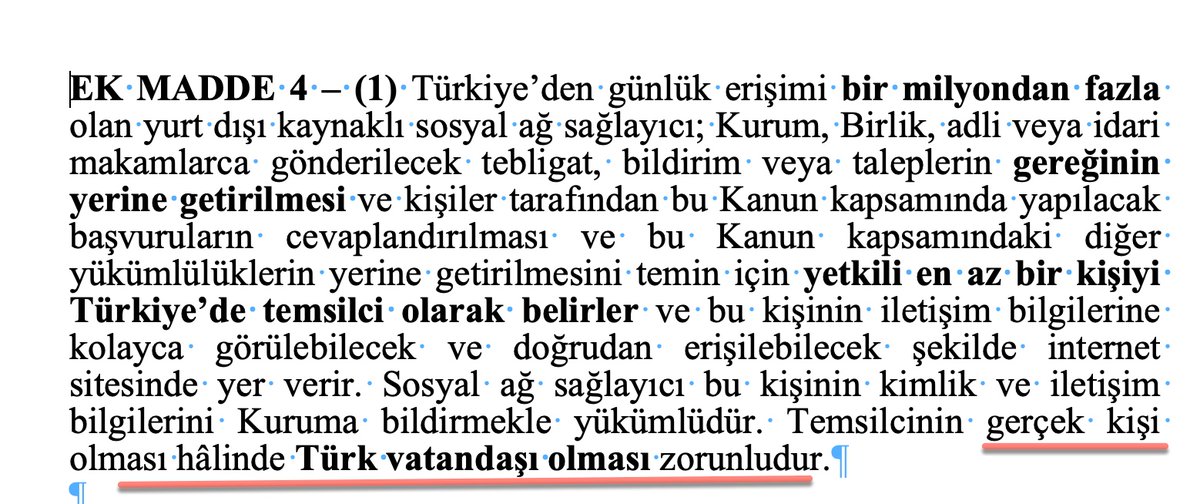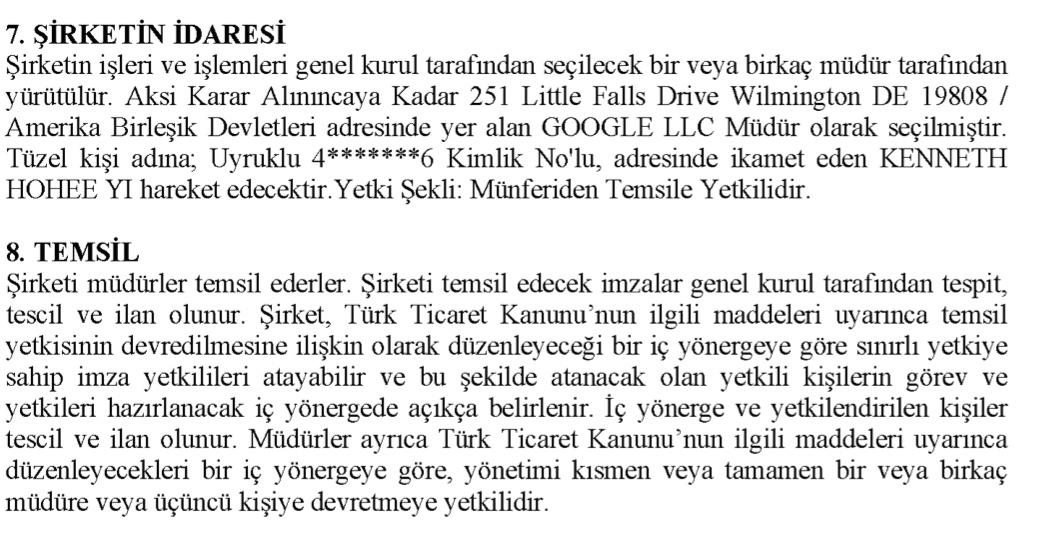1. According to an article published today, Google seems to have established a shell company in Turkey to fulfill its responsibilities with regards to the social media law in Turkey https://turk-internet.com/sosyal-medya-sirketleri-hayalet-temsilcilikler-mi-acti/
2. A US based lawyer, Kenneth Hohee Yi has been appointed as the director of this Google established company in Turkey. This Mr. Yi, acts as a director to tens of google companies across the globe from the UK to China to Slovenia and India.
3. The new Turkish legal requirements suggested that the legal representative should be of a Turkish nationality if that person is a real person. The law at this stage seemed to suggest that the legal representation could be also a legal entity.
4. The new legal requirement of July 2020 was further clarified with a decision of the Telecom Authority (BTK) on 29.09.2020 and the decision clearly stated that the social media platforms legal representative could be a legal entity.
5. There was no nationality requirement in terms of the directorship of the legal entity representing the social media platforms in the BTK decision of 29.09.2020.
6. This looks like is the reason behind Google's announcment to comply with the Turkish law and its promise to maintain its "commitments to freedom of expression, access to information, and transparency." https://blog.youtube/news-and-events/update-youtube-turkey/
7. In fact, Google states eplicitly that "We have been able to find a way forward and will commence the process of appointing a local representative legal entity in compliance with the law, without compromising our values" and that YouTube will set up a legal entity in Turkey.
8. The details of the new Google company were published on 12.02.2021 on the Turkey Trade Registry Gazette and the name of Kenneth Hohee Yi appears on the official documentation as acting director.
9. It seems like Facebook, TikTok and others will also set up similar companies in Turkey so as to say "comply with the Turkish legal requirements." It remains to be seen whether Twitter will also jump on the bandwagon happily ever after.
10. So far this seems like a WIN-WIN situation for everyone involved. The government did not have to back-down and the platforms believe that they found a "loophole" to operate without compromising their current approach to demands coming from Turkey.
11. Is this though really a "loophole" that the Government authorities did not think about, or did the likes of Google and Facebook and others are falling into a trap? What will happen when the legal demands for compliance and user data start flowing towards the platforms?
12. The platform providers through their "local legal entities" with their directors based elsewhere outside Turkey need to assess and respond to all user requests for personal rights and privacy violations within 48 hours.
13. There remains the data localization requirements so far as Turkey based users and it is not clear at all what the deal is on this specific issue. What are the platforms coming to Turkey are committing to?
14. If the platforms base din Turkey do not comply with the requirement of addressing the users' requests within 48 hours, they face 5M TL (671.000 USD) administrative fine. What happens if the "local legal entity" does not pay these fines?
15. There are other fines too. If the platforms do not comply with articles 8 (harmful to children content) and 8/A (national security and public order - Wikipedia type) they will face 1M TL (134.000 USD) fine and these will double up with each violation involving non compliance.
16. Also, if they do not comply with blocking or removal orders involving articles 9 (personal violations) and 9/A (privacy violations) they will face a judicial fine but the judicial fine can only be attributed to real persons. How will this work with company directors abroad?
17. At the end, the current situation is far from clear and this is certainly not the end of the story. However, regardless of whether there is a loophole or not, social media platforms risk becoming complicit in freedom of expression related violations in Turkey.

 Read on Twitter
Read on Twitter




